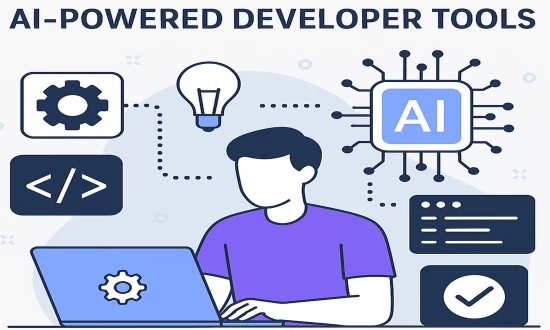The landscape of software development is undergoing a seismic shift, driven by the rapid advancement and integration of artificial intelligence. At the forefront of this revolution are AI-powered developer tools, encompassing code agents and autonomous integrated development environments (IDEs), which promise to augment developer capabilities, accelerate development cycles, and ultimately reshape the future of software creation. This essay will delve into the transformative potential of these technologies, exploring their functionalities, benefits, challenges, and the evolving role of the software developer in an AI-assisted world.
Traditional software development, while a testament to human ingenuity, is often characterized by repetitive tasks, complex debugging processes, and the ever-present challenge of maintaining code quality and consistency. AI-powered developer tools are poised to address these pain points by automating routine tasks, providing intelligent code suggestions, and enabling developers to focus on higher-level problem-solving and creative endeavors.
Code agents, often implemented as plugins or extensions within existing IDEs, represent a significant step towards AI-augmented coding. These agents leverage machine learning models trained on vast code repositories to provide real-time code completion, error detection, and intelligent refactoring suggestions. By analyzing code context and understanding developer intent, code agents can anticipate coding needs, propose relevant code snippets, and even identify potential bugs before they manifest. This proactive assistance not only accelerates development speed but also improves code quality by promoting adherence to coding standards and best practices.
Autonomous IDEs take the concept of AI-powered assistance a step further by integrating AI capabilities directly into the core IDE functionality. These intelligent environments can automate complex tasks such as project setup, dependency management, and build processes. Moreover, autonomous IDEs can learn from developer behavior, adapt to individual coding styles, and provide personalized recommendations tailored to specific project requirements. The ultimate goal of autonomous IDEs is to create a seamless and intuitive development experience, where developers can focus on the creative aspects of software design while the AI handles the more mundane and repetitive tasks.
The benefits of AI-powered developer tools extend beyond individual developer productivity. By automating routine tasks and providing intelligent assistance, these tools can free up developers to focus on more strategic and creative endeavors, such as designing innovative features, architecting complex systems, and solving challenging technical problems. This shift in focus can lead to increased job satisfaction, improved team collaboration, and ultimately, the development of more innovative and impactful software solutions.
However, the adoption of AI-powered developer tools is not without its challenges. One concern is the potential for over-reliance on AI assistance, which could lead to a decline in fundamental coding skills and a decreased ability to solve problems independently. Another challenge is the need for developers to adapt to new workflows and interaction models, as AI-powered tools fundamentally change the way software is developed. Furthermore, there are ethical considerations surrounding the use of AI in software development, such as the potential for bias in AI models and the need to ensure transparency and accountability in AI-driven decision-making.
As AI technology continues to evolve, the role of the software developer will undoubtedly transform. Developers will need to acquire new skills in areas such as AI model training, data analysis, and human-computer interaction. The ability to effectively collaborate with AI agents and leverage autonomous IDEs will become increasingly important, as developers transition from being primarily code writers to being orchestrators of AI-powered development processes.
In conclusion, AI-powered developer tools, including code agents and autonomous IDEs, represent a paradigm shift in the field of software development. While challenges remain, the potential benefits of these technologies are undeniable. By automating routine tasks, providing intelligent assistance, and enabling developers to focus on higher-level problem-solving, AI-powered tools are poised to revolutionize the way software is created, accelerating innovation, improving code quality, and ultimately shaping the future of the software industry. The key to unlocking this potential lies in embracing a collaborative approach, where developers and AI agents work together to create software solutions that are both innovative and impactful.


